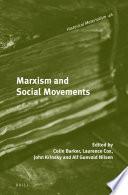
Children in Social Movements
Rethinking Agency, Mobilization and Rights
Children’s participation in social movements is presented through a theoretical typology consisting of strategic participants, participants by default and active participants. This range of participation accounts for the social location of children historically and internationally, calling for their inclusion into social movement research. Children are unresearched and untheorized participants within social movement literature. Providing rich detail of children’s participation through illustrative case studies, this book presents the ideal types of participation as grounded in their social movement activity. These cross cultural, historical and contemporary case studies include, whenever possible, children’s perspective in their own words. Utilizing insights from childhood studies on agency and rights of children enhances the understanding of social movement strategies and mobilization. Following the chapters on each type of participation, suggestions are provided for rethinking existing social movement theories to acknowledge child participants. Scholars and students of social movements and childhood studies, as well as within the field of sociology will find interest in the wide range of case studies presented of children in social movements. The discussion of how social movement theory might be applied to the types of participation is meant to inspire future research and expand analysis of children’s participation in social movements.
- ISBN 13 : 1000053407
- ISBN 10 : 9781000053401
- Judul : Children in Social Movements
- Sub Judul : Rethinking Agency, Mobilization and Rights
- Pengarang : Diane M. Rodgers,
- Kategori : Social Science
- Penerbit : Routledge
- Bahasa : en
- Tahun : 2020
- Halaman : 174
- Google Book : https://play.google.com/store/books/details?id=7-HWDwAAQBAJ&source=gbs_api
-
Ketersediaan :
Providing rich detail of children’s participation through illustrative case studies, this book presents the ideal types of participation as grounded in their social movement activity.









